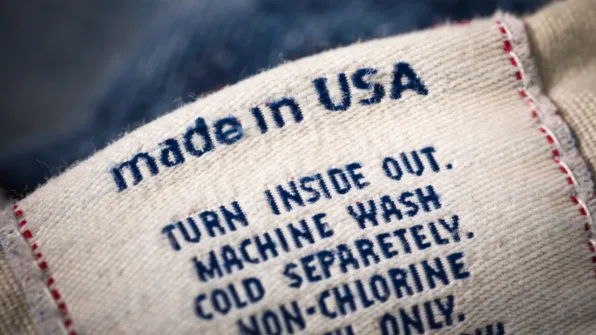By Cluey Team
When you look at the tag or fine print on your product and see, “Made in…” what comes to mind? Your answer may depend on the country of origin, but when you see a product claiming “Made in U.S.A.” you may feel good knowing the product you bought is supporting American jobs, made with American goods, and abides by American labor standards. With that in mind, U.S. consumers have shown that they are often willing to pay more for goods that are American made.
Are all of those claims that are associated with the “Made in U.S.A.” label true though?
Is the “Made in U.S.A.” label legit? Short answer: Generally, yes, but it’s far from a perfect guarantee.
The “Made in U.S.A.” or “American Made” or other similar claims on products means that “all or virtually all” of those products were made stateside (including final assembly and processing). This means that “no – or negligible – foreign content” is used.
Who regulates those claims?
The Federal Trade Commission (also known as the “FTC”) is the main government entity in the U.S. in charge of promoting consumer protection and enforcing anti-trust laws. This means a lot of things, but for the purposes of this specific topic, one of their responsibilities is to regulate honest and ethical advertising practices and claims made by companies to consumers.
They set the rules on what it means to make a “Made in U.S.A.” claim, and they’ll investigate violations as needed.
Do companies ever get away with “fudging” it on these claims?
Yes it’s possible, and it’s been done, but not without risk. It’s possible because there is no pre-approval process required to make this claim, only an expectation to play by the rules set by the FTC. The risk, if a company were to violate these rules, means that a federal agency would come after them.
For example, New Balance, a shoe brand that has proudly claims to be “Made in the U.S. for over 75 years” has faced lawsuits in the past for the fact that up to 30% of its products were found to be from oversees content and assembly. Other brands who have similarly violated these rules in the past have faced even harsh penalties and long legal battles with the FTC.
The FTC’s rules dictate there can be two types of claims: an unqualified or qualified claim. For unqualified claims, like the one made by New Balance, it’s essentially a claim without any asterisks or qualifiers on the product being “fully” American-made. A qualified claim, is a claim that comes with a qualification, such as saying “Designed in California – Assembled in China” as is the case for Apple and their products.
Ultimately, the label is not a perfect guarantee given the lack of pre-approvals, but it is regulated.
Are there real benefits to products being American made?
For American consumers, yes. To name a few:
- Products made in the U.S. support American jobs.
- Products made domestically means a shorter supply chain which has the benefits of possibly lowering the carbon footprint of a product as well as creating less uncertainty in availability for consumers.
- Products made in the U.S. are abiding by U.S. labor laws for workers. U.S. labor practices and protections outpace those of many other countries (including many of the countries who the U.S. imports the most from), but there are other countries who rank higher when it comes to workers’ rights. To dive deeper, take a look at the ITUC’s annual report called the “Global Rights Index” to see the best and worst countries for workers.
How can you be sure as a consumer that you’re buying brands made responsibly?
Avoiding expectations of perfection in consumer decisions is certainly a start. It’s unavoidable to make perfect buying choices in our current systems of consumerism, but with tools like Cluey, consumers can get closer to buying in line with their values.
We are bringing in data points from federal violations and proven cases of unethical or misleading advertising practices to consumers (among the many other impacts we measure). Whenever these issues are present, those inputs are reflected in our “People Impact” ratings on a brand, as it’s an impact on the consumer. Our tip is to look for brands that score strongly on their people impacts if you want to find brands operating responsibly towards their consumers, workers, and supply chain partners.

